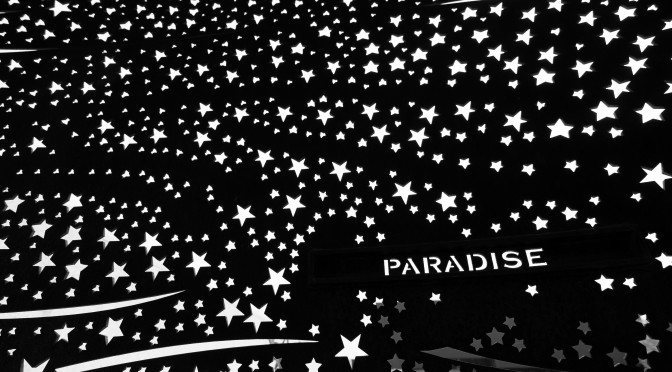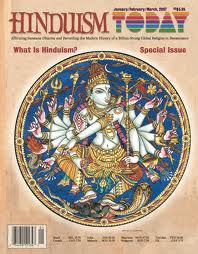Reproduced with permission from Hinduism Today
The building of a house, or even any transaction concerning it, is not just a matter of masonry or of business. It is in both instances a liturgical act, in which human lives as well as the powers above and below are involved.
A house is not real estate, but a human dwelling place, the prolongation, in a sense, of a Man’s body; it is the first extension of Man’s real world. It is no wonder that even up to our own times the human habitat has been the last bastion to succumb to the desacralizing process.
In almost all human traditions there have been innumerable blessings and spells, enchantments and magic practices concerned with houses. The Atharva Veda is full of this and special attention is paid to the purification of a house from all evil forces. A house is not only shelter for the body; it is shelter for the whole world also, for in the house sacrifice will often be performed. In fact the word shala meant, first of all, the sacrificial building, and then came to signify a home, once sacrifice began to be performed regularly in people’s homes.
Because sacrifice is the center of the house and of Man’s family life, the house is said to be built by brahman, liturgical action and sacred word, to be designed by the kavi, the poet or wise man, and to be the abode of rita, cosmic order.
***************
O Pillars of this House of countless treasures, O buttresses and crossbeams, we loosen your bonds!
What is bound in you who contain all riches, those fetters and knots, with a powerful word I unloose, like Brhaspati breaking open the cavern.
We unite the bonds of your beams and clasps, of your thatch and your sides, O House of all riches.
We loosen the bonds of the clamps and bundles, of all that encircles and binds the Lady of the House.
These hanging loops,which are tied for enjoyment within you, we loosen. May the Lady of the House, when established within her, be gracious toward us!
Receptacle of oblation and hall of Agni, abode and domain of the wives are you. You, Goddess House, are the seat of the Gods.
By Holy Word we unfasten the extended thousand-eyed net which rests upon the central beam, well-placed and well-fastened.
May the one who receives you as a gift, O House, queen among dwellings, and the one who built you both enjoy long life and reach ripe old age!
Here let her come to meet her owner. Firmly fastened and adorned are you, whose limbs and joints we proceed to loosen!
The one who collected the trees, O House, and built your walls, the Highest Lord of creatures, has made you for the increase of children.
To him be homage! Homage to the donor and to the master of the House! Homage to Agni and homage to the one who performs his rites!
In your innermost heart, with both creatures and men, you cherish God Agni. O future scene of births and young life, we loosen your bonds!
The expanse that lies between heaven and earth I accept together with this your House. The air it encloses I make a container for wealth.
Abounding in food, abounding in milk, with firm foundation set on the earth, receptacle of every nourishing thing, do no harm, O House, to those who receive you.
Covered with thatch and clothed in straw, the House, like night, gives rest for her inmates, she stands firm-fixed, her broad feet planted on the earth like an elephant cow’s.
This House is founded on Worship, designed and built by the wise. May Indra and Agni, the immortals, protect this House, the abode of Soma.
One nest is placed upon a second, one container laid upon another. Within is born a mortal. From here all things originate.
This House is constructed with two sides, with four, with six, eight, or ten. In this Mistress dwelling lies Agni like an unborn babe in the womb.
Facing you, O House, who are facing me, I approach you peacefully: sacred Fire and Water are within, the main doors to Cosmic Order.
I bring here these waters, free from disease, destroyers of disease. In this House, together with Fire immortal, I take up my abode!
From the eastern direction I summon a blessing to the glory of this House. Praise to the Gods, the praiseworthy, forever and ever!
From the southern direction, the western direction, from the northern direction, from the depths below, the heights above, I summon a blessings to the glory of this House. Praise to the Gods, the praiseworthy, forever and ever!
Atharva Veda IX, 3
Raimundo Panikkar, 83, holds doctorates in science, philosophy and theology. His anthology of verses, The Vedic Experience, excerpted above, is the result of ten years spent in Banaras translating with the help of Vedic scholars.
The Vedas are the divinely revealed and most revered scriptures, sruti, of Hinduism, likened to the Torah (1,200 bce), Bible New Testament (100 ce),Koran (630 ce) or Zend Avesta (600 bce). Four in number, Rig, Yajur, Samaand Atharva, the Vedas include over 100,000 verses. Oldest portions may date back as far as 6,000 BCE

